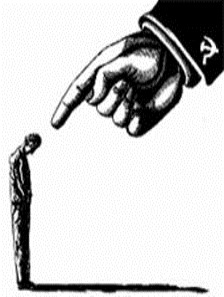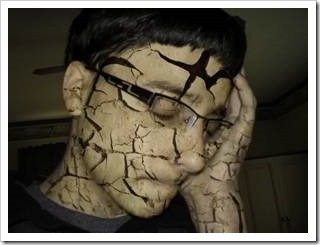
It is not easy to parent when our young kids just do not do what we want them to do. It was once popular to punish children physically for not doing what they were told. It was believed that if pain was associated with not doing what you are told, children would immediately obey.
This strategy was only useful for figures in authority (like parents and teachers). Unfortunately, it did not provide the desired outcome. Children simply learned not to get caught. If an authority figure disappeared or lost their power, the subject would revenge, big time.
After parents, there are authority figures like teachers and managers who used shame as an alternative to physical punishment. It was a way to punish through emotional pain, without the physical pain. This seemed to work but the side effects can be severe.
Chronically dysfunctioning families are also delusional. Delusion is sincere denial
– John Bradshaw
Understanding shame
Shame is a painful emotion that can be caused by guilt, embarrassment, unworthiness or disgrace. The first feelings of shame are born when the most important people in a child’s life shows great disappointment, ridicules, humiliates, dishonors, or condemns the child. It can be associated to an action, to non-action, to look, to affiliation, to gender or any other diverse aspect of the child’s life. The problem with shame is that when the shaming authority disappears, the child becomes a grown up that feels shame, even if no one is shaming him/her. They become their own abusers.
My parents used this method with me and my siblings. It created a huge fear of shame. When my mom was upset with us, she would say, “I am going come to school and tell your teacher what you did at home”. This is just what was appropriate to do with children at the time. Luckily for me, this was an improvement from the way her own parents used punishment and shame.
How to recognize shamed kids?

Most shamed people (kids and grown up alike) spend most of their energy hiding their shame, often through addictive behaviors. They are more likely to be addicted to substances, processes or other people. They will be easily seduced to use alcohol, sugar, caffeine or cigarettes, be workaholics, have compulsive behaviors like bulimia, anorexia, cutting, gambling, and obsessive shopping or may be totally dependent on a person in their lives to the point of not being able to function without them. All this addictive behavior is a search for a sense of control. They will likely use labeling and find faults in others.
In his book, “Healing the Shame that Binds You”, John Bradshaw claims that shame can be “toxic”. It produces behaviors that are very problematic and can be very hard to get rid of.
Kids that are shamed find ways to deal with this hurt in a subconscious way. Some of them become arrogant, critical or hostile. Others hide their feelings or intellectualize the situation in order to numb the pain. They feel powerless and look for dysfunctional ways to gain power.
Shaming is very debilitating and kids from as early as one year old can be shamed by important people in their lives, like parents, teachers, and family members. In some cultures, kids are ashamed of their gender and think that the need to fit into a gender stereotype. Girls think they should be skinny, popular, caring and obsessed with their appearance. Boys think they should be tough, never cry and show emotions. With such limitations, they can never be “OK”.
It is hard to overcome shame but not impossible. Children can overcome shame, but they need help. They cannot do it by themselves. They must find a person they trust to show them they are loved and valued, able and powerful.
The first step is for the adult to be a role model and show interest in the kid. Empower the kid to find strength inside and recognize his/her own self worth.

Here is a list of behaviors that kids with shame develop:
- Addiction to substances
- Addiction to processes
- Addiction to people
- Underachieving
- Bullying
- Victims
- Arrogant to hide pain
- Bulimic/anorexic
- Workaholic
- Learning disabled
- Obsessive compulsive
- Gambling
- Obsessive shopping
- Cutting
- Constantly finding fault in others
- Teachers’ pet
- Self sacrificing (the disease to please) in order to gain love
- Perfectionistic
- Competitive
- Sarcastic to hide weakness
- Power seeking at all costs
- Blaming others
- Avoidant and withdrawn

Join me next time when I explain the difference between guilt and shame and how it produces an “I’m not OK” mentality in kids.
Happy parenting,
Ronit
This post is part of the series I'm OK - You're OK Parenting:
- I’m OK, You’re OK Parenting: OK and EQ
- I’m OK, You’re OK Parenting: Shame
- I’m OK, You’re OK Parenting: Guilt
- I’m OK, You’re OK Parenting: Parenting Styles
- I’m OK, You’re OK Parenting: Being an “I’m OK” Parent
- I’m OK, You’re OK Parenting: Being a “You’re OK” Parent
- I’m OK, You’re OK Parenting: “I’m OK” Beliefs











